Guildford pub bombings: Who were the victims?
- Published
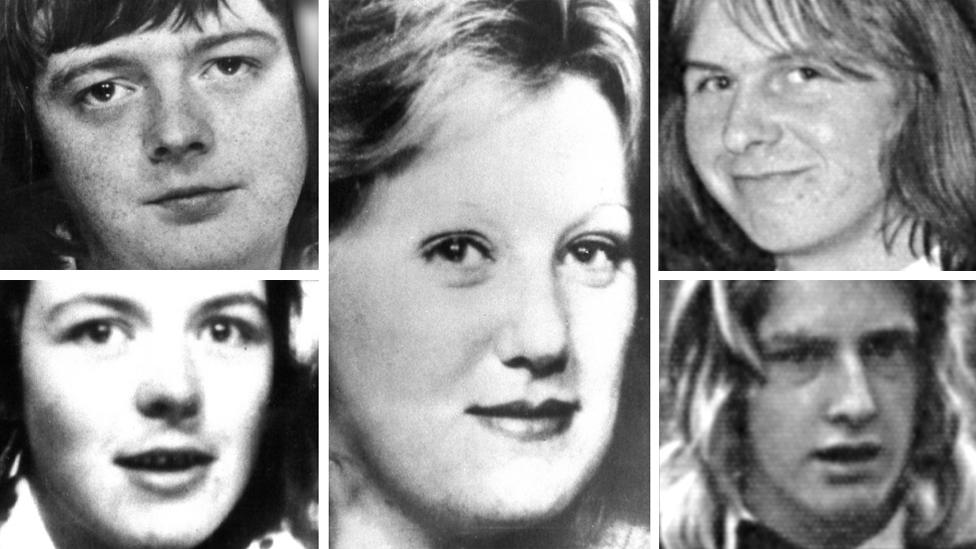
(Clockwise from top left) Paul Craig, 21, Caroline Slater, 18, John Hunter, 17, William Forsyth, 18, Ann Hamilton, 19, died in an explosion at the Horse and Groom
Four soldiers and a civilian died in the Guildford pub bombings on 5 October 1974. Pen portraits were read out for each person at a resumed inquest into the deaths. The youngest victim was just 17 years old.
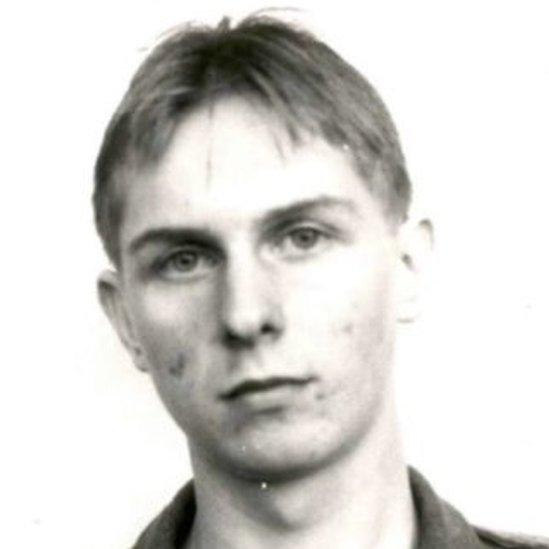
John Hunter, aged 17, had enlisted in the Scots Guards two months before he died
John Hunter had been "inseparable" from Billy Forsyth, who also died in the terror attacks. The two boys had grown up in the same street in Barrhead, Renfrewshire, gone to the same school, joined the Boys Brigade together and gone to swimming club together. In August 1974 - just two months before the bombings - they enlisted together in the Scots Guards.
The 17-year-old's parents had thought their son would be "relatively safe" unless posted to Northern Ireland. The news of his death in an IRA bombing was met with "bewilderment and shock".
In the end, the two friends who lived and died together were later buried next to each other.
In a moving statement read out at the inquest, his sister Diane Reid wrote: "He was prevented from falling in love, getting married, having children and grandchildren, having a career, travelling and all the things that make for a happy and fulfilling life.
"Others robbed him of his opportunities. How their actions contributed anything to a political cause is bewildering to us as his sisters, and indeed as human beings. It was and remains such a waste."
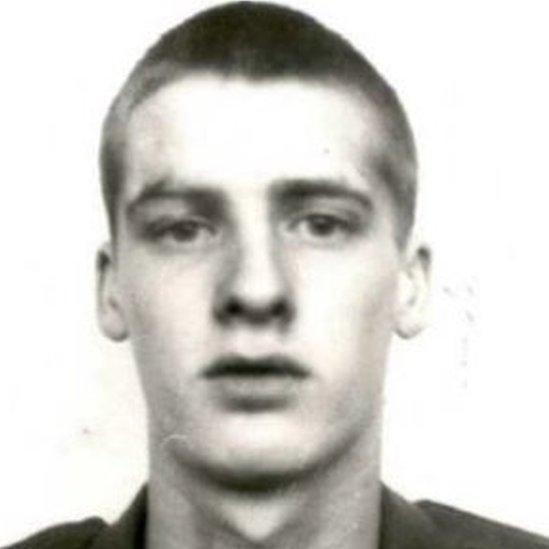
William (Billy) Forsyth, 18, had been "over the moon" after his nephew was born
William Forsyth - known as Billy - had been "over the moon" at becoming an uncle just days before he left to join the army.
His sister had given birth to her first son in Wales, but less than five weeks later, the family was "dumbstruck" and devastated at Billy's death at the age of 18.
His brother, Thomas Forsyth wrote: "He never got to meet or know any of his three nephews.
"After Billy left to join the army, I never spoke to him again.
Remembering Billy as a "typical wee brother", he said Billy had played football, grown up surrounded by friends, and had worked in a shop and at a local firm before enlisting in the army.
He said their parents had gone to their graves "with heavy, heavy hearts", but he and his sister still cherished memories of Billy's short life and would never forget him.
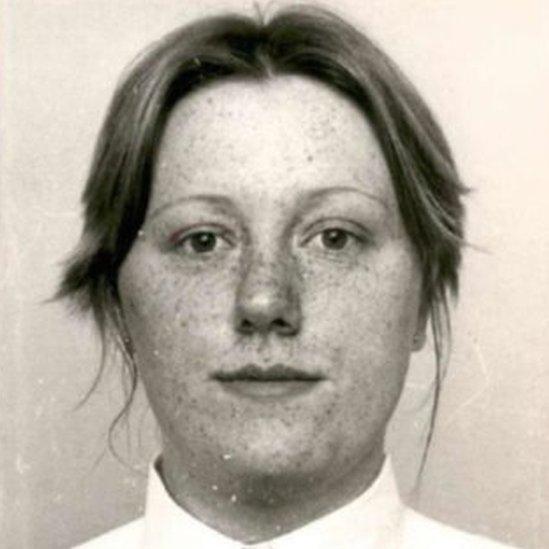
Caroline Slater, 18, had dreamed of a career, possibly as a military policewoman
Caroline Slater had signed up for the Women's Royal Army Corps (WRAC) with her friend, Jane Stanton.
She had grown up in Cannock, Staffordshire, and had dreamed of having a worthwhile career in the army. She had been keen to work on an army switchboard or serve as a military policewoman.
Her family had supported and encouraged her ambition to join the WRAC.
She had a boyfriend who was also in the army, serving in the Guards. On the day of her death, she had been to Guildford to shop for clothes for her sister's baby.
Ms Slater had been due to go home the following week. It would have been her first period of leave since joining the WRAC. She died at the age of 18.
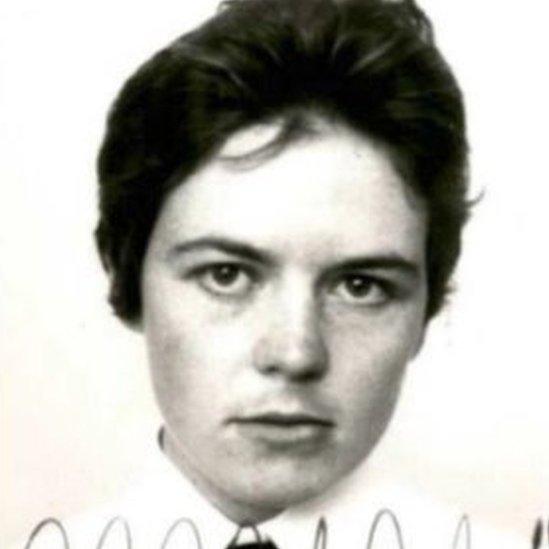
Ann Hamilton, 19, had set her heart on joining the army as a schoolgirl
Ann Hamilton, who was from Crewe, had set her heart on joining the army as a schoolgirl, the inquest heard. A bubbly girl who had played football and loved to dance, she had enjoyed her first weeks with the WRAC, particularly "square-bashing" - a term used for the military drill which took place in the barracks square.
At home, Ann, with her brother Frank and sister Marie, had looked after her little sister Cassandra, who was just two when Ann died.
Cassandra Hamilton remembered how her sister would babysit, feed her, tuck her into bed and read her a story before prayers. Bedtime always ended with Ann's words to her: "I love you, Sugar."
She said 18 months after Ann's death at the age of 19, her father died of a broken heart. He had moved with his wife from Northern Ireland to England to keep his family safe, but he had not been able to do it.
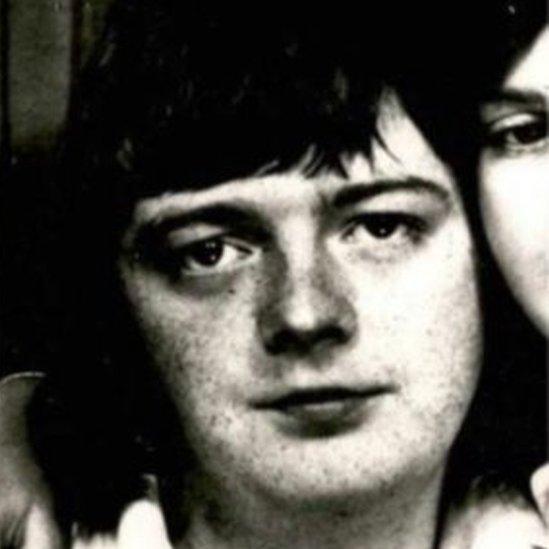
Paul Craig, 21, loved his film crew life and wanted to work at the studios "forever"
Paul Craig was from Borehamwood, Hertfordshire, and had trained as a plasterer. He had made his parents proud when he got a job at Associated British Productions Ltd, later known as EMI Studios.
His family remembered how it had been a joy for the 21-year-old to go to work where he made items to be smashed on screen and created special effects that could be anything from fake walls and vases to bathroom fittings. He worked on the famous Murder on the Orient Express. The inquest heard he intended to remain working in the studios "forever".
Mr Craig had been friends with the Burns family - Robbie Burns and his wife Eileen and their daughter Carol - and had driven them to Guildford to celebrate Carol's birthday in the Horse and Groom pub on the night the bombs went off. Carol Ann Burns had joined the WRAC a few weeks earlier and was celebrating in the pub with members of her platoon.
That night, he celebrated his own 22nd birthday, which would have been the next day on 6 October. His family that day identified his body.
Mr Craig's sister Pat Garrard, who attended the hearing, told the inquest: "Losing Paul was and still is a loss to us all.
"He was such a joy."

Follow BBC South East on Facebook, external, on Twitter, external, and on Instagram, external. Send your story ideas to southeasttoday@bbc.co.uk.